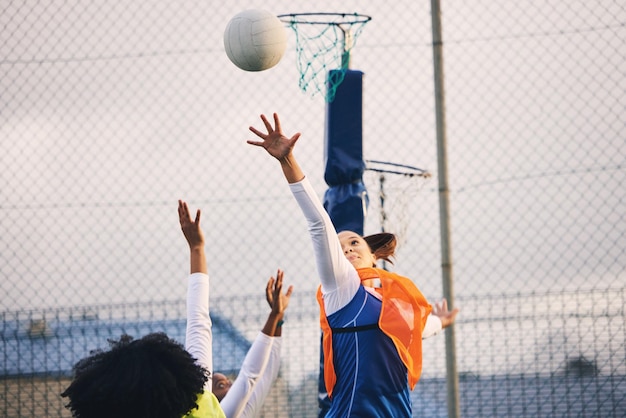The role of a goalkeeper in netball is both challenging and critical. As the last line of defense, a goalkeeper must possess agility, tactical understanding, and unwavering focus. This guide aims to provide an in-depth look at the nuances of playing goalkeeper, offering strategies and tips to excel in this position.
Understanding the Goalkeeper’s Responsibilities
Before delving into techniques, it’s essential to comprehend the goalkeeper’s duties on the court. Charged with the task of defending the goal circle, the goalkeeper must prevent the opposing team’s shooters from scoring. This requires not only physical prowess but also a strategic mindset to anticipate and counter the opponents’ moves.
- Positioning and Movement: A goalkeeper’s effectiveness is largely determined by their positioning. Staying on the balls of your feet and maintaining a balanced stance allows for quick movements in any direction. It’s crucial to shadow the shooter, keeping within arms’ reach without infringing on their space.
- Reflexes and Blocking: Quick reflexes are the goalkeeper’s best asset. Training to improve reaction times can make the difference between a goal scored and a goal saved. Blocking techniques, such as the “hands over” defense, can disrupt the shooter’s rhythm and visibility, increasing the chances of a missed shot.
- Communication and Teamwork: A goalkeeper does not operate in isolation. Effective communication with fellow defenders is vital to form a cohesive unit. Alerting teammates about the shooter’s position and potential plays helps in mounting a strong defense.
Training and Conditioning
To excel as a goalkeeper, one must engage in specialized training that enhances the skills pertinent to the role.
- Agility Drills: Agility is paramount for a goalkeeper. Drills that improve footwork, such as ladder and cone exercises, can significantly enhance a goalkeeper’s ability to move swiftly and change direction rapidly.
- Strength and Endurance Workouts: The physical demands of goalkeeping require a strong core and lower body strength. Incorporating exercises like squats, lunges, and planks will build the necessary endurance to maintain a high level of play.
- Reaction Time Exercises: Enhancing reaction times can be achieved through various drills, such as catching a ball dropped without warning or responding to visual cues. These exercises train the goalkeeper to react instinctively to shots on goal.
- Match Simulation: Practicing in a scenario that mimics a real game is invaluable. It allows the goalkeeper to apply their skills in context, understand the flow of the game, and develop strategic thinking.
The Psychological Game
Beyond physical abilities, a goalkeeper’s mental fortitude is a decisive factor in their performance.
- Confidence Building: A confident goalkeeper can intimidate shooters and make crucial saves. Building confidence through positive reinforcement and successful training outcomes is essential.
- Stress Management: Learning to manage stress and nerves, especially in high-stakes situations, ensures that a goalkeeper’s performance remains consistent.
- Focus Techniques: Developing techniques to maintain focus, such as visualization and breathing exercises, can help a goalkeeper stay alert and ready throughout the game.
- Learning from Experience: Reflecting on past performances, both good and bad, allows a goalkeeper to learn and grow. Understanding what went wrong and celebrating what went right builds a strong psychological foundation.
Nutrition and Recovery for Netball Goalkeepers
The intensity of a netball goalkeeper’s role demands a well-thought-out nutrition and recovery plan. Proper fueling before games and practices can enhance performance, while effective recovery strategies can reduce the risk of injury and prepare the body for subsequent exertions.
A goalkeeper’s diet should be tailored to provide the energy required for quick reflexes and sustained effort throughout the match. Here is a table outlining the essential elements of a goalkeeper’s diet:
| Nutrient Category | Examples | Benefits |
|---|---|---|
| Carbohydrates | Whole grain bread, pasta, rice, fruits | Quick energy source, fuels high-intensity activity |
| Proteins | Chicken, fish, tofu, legumes | Muscle repair and growth |
| Fats | Avocado, nuts, olive oil | Long-term energy, supports cell function |
| Hydration | Water, electrolyte drinks | Maintains fluid balance, essential for concentration |
| Vitamins & Minerals | Leafy greens, berries, dairy | Immune support, bone health, muscle function |
Recovery Techniques to Maintain High Performance
Recovery is as crucial as active training. A goalkeeper’s recovery plan should include:
- Adequate Sleep: Essential for cognitive function and physical healing.
- Active Recovery: Low-intensity activities like swimming or yoga can aid muscle recovery.
- Hydration: Replenishing fluids lost during play helps maintain bodily functions and aids recovery.
- Nutrition Post-Game: Consuming carbohydrates and proteins after a game assists in muscle recovery and energy replenishment.
A goalkeeper’s performance is significantly influenced by their diet and recovery practices. Consuming a balanced diet rich in carbohydrates, proteins, and fats, along with staying hydrated, provides the necessary energy and nutrients for peak performance. Post-game recovery, including proper nutrition, hydration, and rest, is essential for muscle repair and preparing the body for future activities. By prioritizing these elements, a goalkeeper can ensure they are always at their best, both physically and mentally.
In brief, the goalkeeper’s role in netball is as demanding as it is rewarding. Through a combination of physical training, mental preparation, and strategic understanding, a goalkeeper can significantly impact the game’s outcome. By mastering the skills outlined in this guide, any aspiring goalkeeper can elevate their game and become a formidable opponent within the goal circle.





